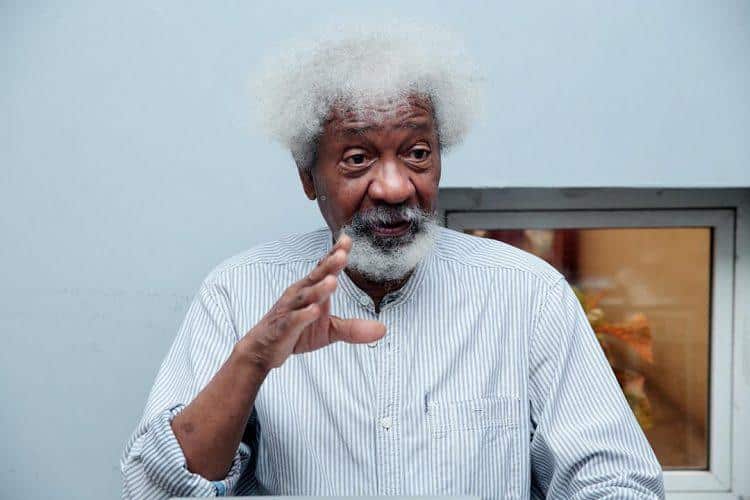Nobel laureate, Professor Wole Soyinka, has said he does not need any religion because he doesn’t worship any deity.
According to him, he’s a mythologist and also believes that people have a right to create myths around themselves based on their experiences.
Soyinka said this at the public presentation of his two-volume collection of essays on Sunday, as published by PM News.
He said, “Do I really need one (religion)? I have never felt I needed one. I am a mythologist. I believe that people have a right and cannot help creating mythologies around themselves, around their experiences about what they project from the inner recesses of their minds as answers to questions.
“And so I find nothing wrong with utilising mythologies as part and parcel of my creative warehouse.
“But religion? No I don’t worship any deity. But I consider deities as creatively real and therefore my companions in my journey in both the real world and the imaginative world.”
Soyinka speaks on religion and schoolchildren
Recently, Soyinka spoke against the move to ensure Muslim female students wore hijab as part of their school uniform, saying such would make children start seeing the difference among themselves at an early age.
He said, “There is one other thing going on in my mind. And I think we have the experts here who will talk about it. There are some schoolchildren over there. And one wonderful thing about them for me is that they are in uniform. In other words I cannot tell which one is a Christian, which one is a Muslim, which one is an Orisa worshipper, which one is a Zoroastrian, which one is a Buddhist. They are schoolchildren.
“They are equal and they are being encouraged to see one another as human beings, not as separate creatures. And I want to be informed if it is against democracy that schools insist that uniforms be worn by children so that they are not distinguished in a very dramatic way. So that they do not look at one another as different.
“So now I’m talking to religionists. I’m saying why do you want to create such marked differentiation at that age, that impressionable age, when we need to teach our children to look at one another as equals, as the same people, the same entitled creatures of society?”


